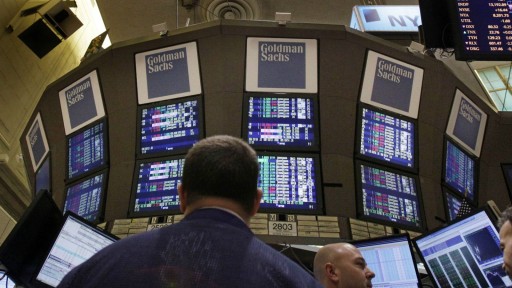- Home
- >
- FX Daily Forecasts
- >
- Goldman Sachs says post-Brexit yen rise won’t stop despite Japanese intervention talk

Goldman Sachs says post-Brexit yen rise won't stop despite Japanese intervention talk

Japan's policymakers can't do much to yank the yen off the Everest-style peaks it's scaled since the U.K. voted to exit the European Union (EU), Goldman Sachs' chief Japan strategist cautioned.
Kathy Matsui's comments came as Japanese Prime Minister Shinzo Abe said the government was continuing to watch movements in the equities and forex markets, adding that the Brexit's impact on Japan's economy may not be visible until the medium to long-term.
Also on Tuesday, Bank of Japan Governor Haruhiko Kuroda said the central bank was ready to take steps to ensure financial markets continued to function normally, Reuters reported, while Finance Minister Taro Aso reiterated that he was closely watching the foreign-exchange market and would respond if necessary.
Matsui said, however, that government intervention to weaken the yen was unlikely.
She noted that at the Group of Seven (G7) meeting held in Sendai, Japan, in May, global policymakers agreed that stimulating economic growth shouldn't depend solely on monetary stimulus.
"The idea or thought that Japan and other major economies could do some kind of coordinated intervention on the currency side would seem to go against the grain or the philosophy of what they've just decided," she said, calling potential Japanese intervention a "pretty low probability option."
The yen has surged in the wake of the Brexit referendum results on Friday, with the dollar fetching just 101.62 yen at 9:15 a.m. SIN/HK. That was down from the dollar/yen currency pair's 106.81 yen level early in Friday's session, when the remain camp appeared to be headed for a win.
Tuesday's dollar level, did, however, mark a recovery from Friday's session low of 99.08 yen, its lowest since 2013. But it was still well below levels above 121 yen touched just before the Bank of Japan (BOJ) surprised markets on January 29 by introducing a negative interest rate policy.
Matsui noted that any attempt at intervention might not do much for the currency.
"When the rest of the world experiences a major dislocation of the size that we've seen over the past weekend, clearly the safe-haven currencies like the Swiss franc and like the Japanese yen are going to be bought up," she said. "Whether [intervention] actually works when there is still so much uncertainty in the world is a very big question."
She added, "It does not come without any costs and there is not guarantee that it is going to stick. It may work for a day or two."
Expectations the yen would continue to flex its muscles have driven Goldman's stock recommendations for the Japan market.
"Obviously, the stronger the yen rises, the more negative the hit to earnings," Matsui said, adding that every 10-yen move in the currency was estimated to shave operating profit growth by around 4-5 percentage points.
Exporters' earnings forecasts were already cut and Matsui expected further reductions into the next quarter. She advised avoiding global-exposed sectors and cyclicals and staying closer to home.
"Really stick with domestic demand areas of the market that have much more stable earnings and are not going to be whipsawed by macro gyrations outside of Japan," she said, tipping internet-related and biotech plays, as well as the food and beverage sector.
In another potential fillip to domestic-focused stocks, Matsui also expected that in the autumn, Japan's parliament would introduce a fiscal stimulus package that could be as large as 2 percent of gross domestic product (GDP), or more than 10 trillion yen, aimed at boosting domestic consumption.
Japan's chief government spokesperson, Yoshihide Suga, said on Tuesday that the size of the economic stimulus package hadn't yet been decided, Reuters reported.
Matsui also liked beneficiaries of negative interest rates, which included profitable companies in sectors that carried a lot of leverage, such as real-estate investment trusts (REITs), property, construction and domestically focused transportation plays.
But she advised avoiding electrical and precision machinery stocks as they had the highest exposure to Europe and the automobile sectors, which were exposed to the stronger dollar.
Japan's policymakers would likely need to look to the Bank of Japan (BOJ) meeting in late July for another round of easing that might weaken the currency, she said.
Matsui expected the BOJ would opt for some combination of cutting interest rates deeper into negative territory, offering banks the ability to borrow from the central bank at negative rates and augmenting its existing exchange traded fund (ETF) purchase program. Potentially, the BOJ could do all three, she noted.
 Varchev Traders
Varchev Traders If you think, we can improve that section,
please comment. Your oppinion is imortant for us.






